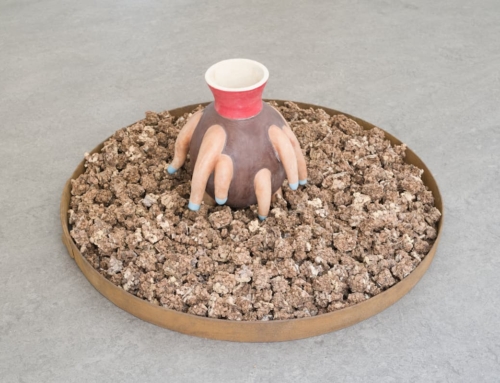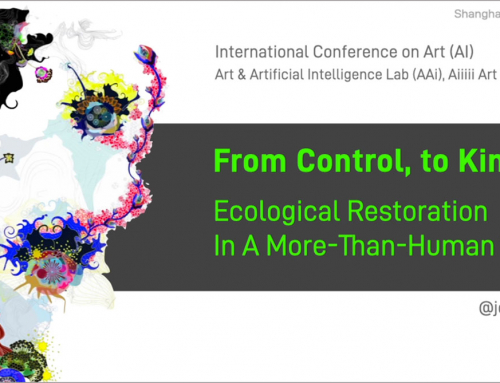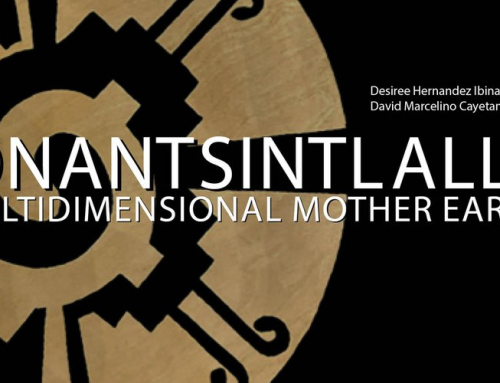Back in November, on the eve of the US book release launch for How to Thrive in the Next Economy, I sat down with Core77’s Allan Chochinov to talk about the project.
AC: When did the book project first begin? Is it something that you’ve been working on for a while, or did it have a definite starting point?
JT: OMG, it must be five years.That’s when I did the first formal treatment, at least. I’ve re-written big chunks of it twice since then – and have added in new a stories along the way as I’ve learned about them.
The whole thing stabilised during 2014 when I had a fixed deadline to meet – and it’s been in production for most of this year so I couldn’t change it any more. I hope it’s a good sign that I’m still proud of the book a whole year after I stopped writing it!
AC: This is a very different book than In the Bubble—which was a tremendous work, but a pretty “thick” read:) Can you tell us about the transition from one to another from your point of view?
JT: I had five years of feedback to In The Bubble to learn from when I started this project – and there was a clear pattern: Bubble was too dense, and not easily digestable, for a lot of people who were otherwise sympathetic to its argument.
With Thrive, I badly wanted to reach readers a few rings out from the inner core of the green design pond – and this meant meant fewer facts and far more effort to explain key concepts.
The biggest thrill I had before publication was a friend in Australia telling me that her non-specialist sister liked the book a lot. So based on that sample of one, I reckon the book meets that key objective.
AC: It’s also been several years since the time period you discuss in In the Bubble. How has the world changed since then, or your perspectives on it?
JT: Realistically, yes, it’s been a good ten years between the two books. For the first one I was agog with the discovery that there’s something called an environmental crisis and packed it full of facts and stories that proved how mad the world is. When the implications of that sank in, I became a confirmed doomer for several years. The global financial crisis of 2008 reinforced my doomerist tendencies.
After that I spent about five years learning that people don’t like being told that the end of the world is nigh. So the new book is about the myriad ways that, in my judgment, the birth of a new one is nigh.
AC: Let’s talk about optimism. I find the new book to be extraordinarily optimistic about the possibilities around our future, yet at the same time quite critical and biting where it needs to be. How were you able to ride that line?
JT: I prefer to think that I’m being clear rather than “biting” – but it’s true that I took a conscious decision to stop giving succour to the ‘do less harm’ school of green thinking.
For a long time I was perplexed by a dilemma. As I said just now, I learned that people don’t respond well to bad news – or to be realistic, they just zone out – so I tried really hard to focus on the positive in my work. But there came a moment – a real life epiphany, which I write about the the book – when I realised that “doing less harm” in a growth-at-all costs economy means doing more harm in the medium term.
This epiphany took me straight back to the doom-and-gloom narrative. (Sighs). I’ve tried to deal with that in the book by putting all the reasons why a return to business as usual is not going to happen in chapter one. Faint-hearted readers should simply skip the first chapter.
AC: If you not my job to were to put together an “essential bibliography” for people who are trying to create positive change, what would be on your top 10 titles right now?
JT: That’s such a hard question. But let me think. (Thinks. Cuts. Pastes).
Ok here’s my list – but bear in mind if you ask me the me the same question tomorrow the list will be different.
Berger, John (2003) Hold Everything Dear: Despatches on Survival and Resistence, Verso
Bollier, David, and Silke Helfrich, eds (2014) The Wealth of the Commons: A World Beyond Market & State, Levellers Press
Gowdy, John (1988), Limited Wants, Unlimited Means: A Reader on Hunter-Gatherer Economics and the Environment, Island Press
Graeber, David (2012) Debt: the First 5,000 Years, Melville House
Harding, Stephan (2006), Animate Earth: Science Intuition and Gaia, Chelsea Green
Macy, Jonna (2014) Coming Back to Life, New Society
McIntosh, Alastair, 2001, Soil and Soul, Aurum Press, 2001
Mignolo, Walter (2003) The Darker Side of the Renaissance: Literacy, Territoriality, & Colonization, University of Michigan Press
Neuwirth, Robert (2012) Stealth of Nations: The Global Rise of the Informal Economy, Anchor Books
Shepard, Paul (2004), Coming Home To The Pleistocene, Island Press
Snyder, Gary (2010) The Practice of the Wild, Counterpoint
AC: And of course I need to ask you about your next project?! What are you working on right now?
JT: I’m re-inventing the Folk High School for these new times. I’ve run Doors of Perception Xskools h in different parts of the world over the past few years, and it’s always frustrating to know that a lot of the work stops when when our group leaves town.
The Folk High School movement in Nordic countries evolved to meet a similar need three or four generations ago when country communities needed to learn how to adapt to industrialization and modernity. So I’m working on the design of an e-Folk High School – a common platform and toolkit that can be adapted in diverse contexts. I’m helping run a two week professional course at Schumacher College in April to flesh this idea out.
AC: What’s the most interesting Thackara-style fact you picked up this week?
JT: Well, in Chicago I learned that President Johnson held a White House Conference on Natural Beauty fifty years ago. That boggles the mind. What topic should today’s be?
AC: You’ve been on the road promoting your new book for a month now. What’s the secrets to marketing a book in this age of information glut?
JT: Breathing the same air, and supping with the devil, are the two things that work. Talking with people, not at them, is fab and I’ve been on the road for ten weeks for that reason. My dilemma is that, short of becoming a nomad for life, I can’t do this for ever. So I ask everyone who reads my new book to consider option 2, and writing a customer review at Amazon.
—




